Basic Math Skills Kindergarten Addition Worksheets
6 filtered results
-
From - To
Welcome to our Basic Math Skills Kindergarten Addition Worksheets! Designed to build foundational math concepts, these engaging worksheets provide young learners with fun and interactive ways to practice addition. Children will enhance their numerical skills through colorful visuals, simple problems, and hands-on activities that promote critical thinking. Ideal for classroom use or at-home learning, our worksheets not only reinforce addition skills but also boost confidence in young mathematicians. With varied difficulty levels, these resources cater to every child's learning pace, making math enjoyable and accessible. Explore our collection today to support your child's journey toward math mastery!
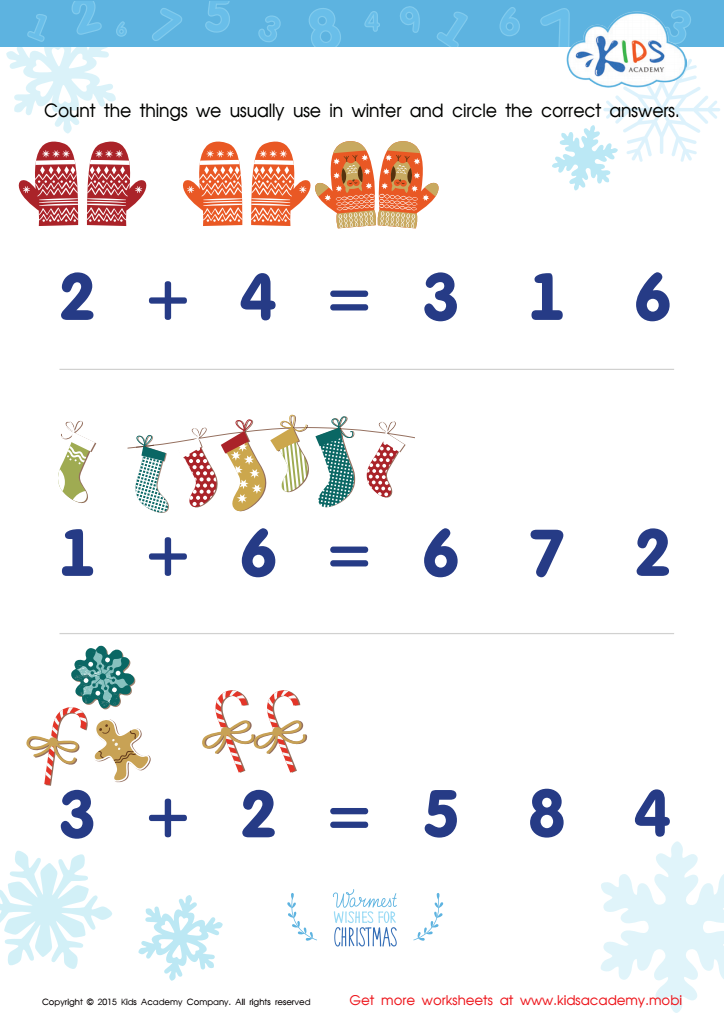

Count Winter Things Worksheet


Counting Seedlings Worksheet
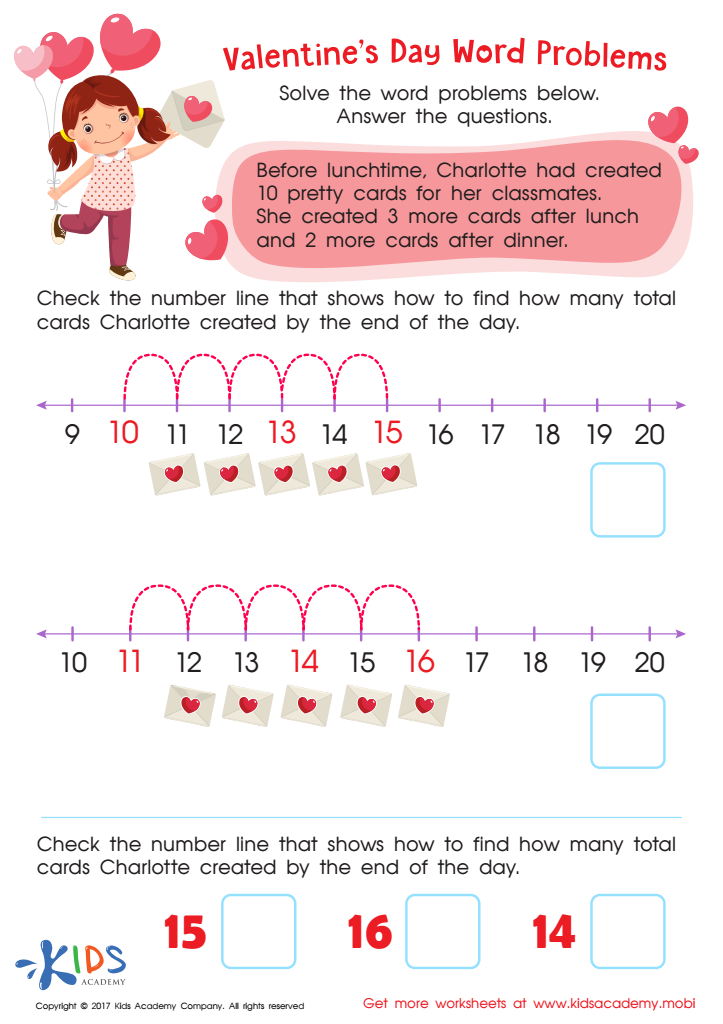

Valentines Day Word Problem Worksheet
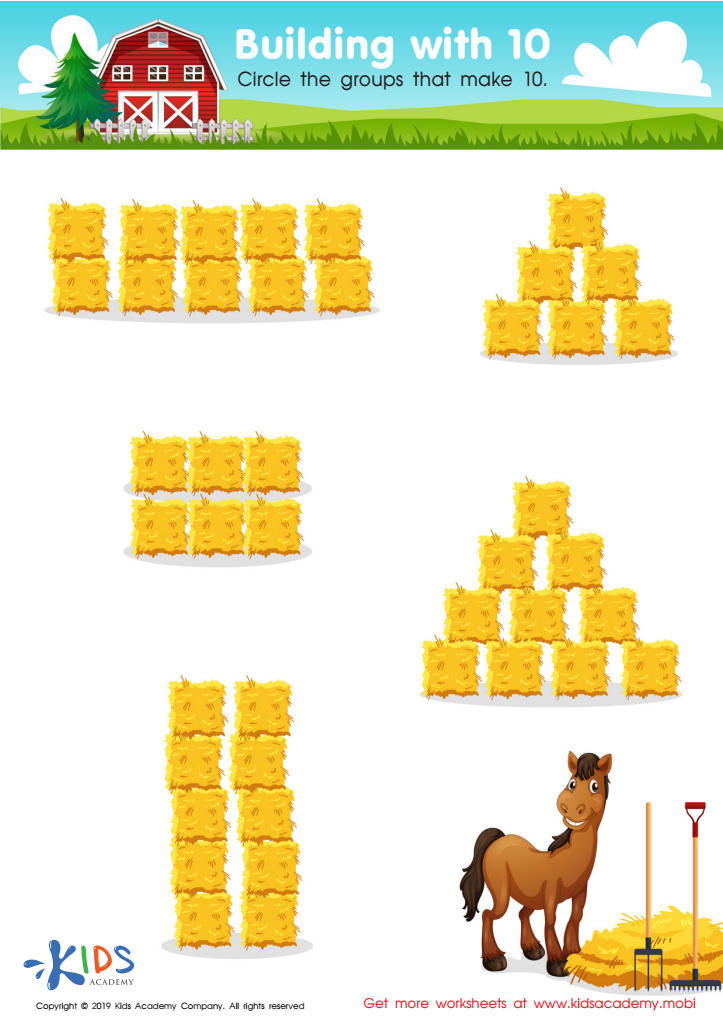

Building with 10 Worksheet
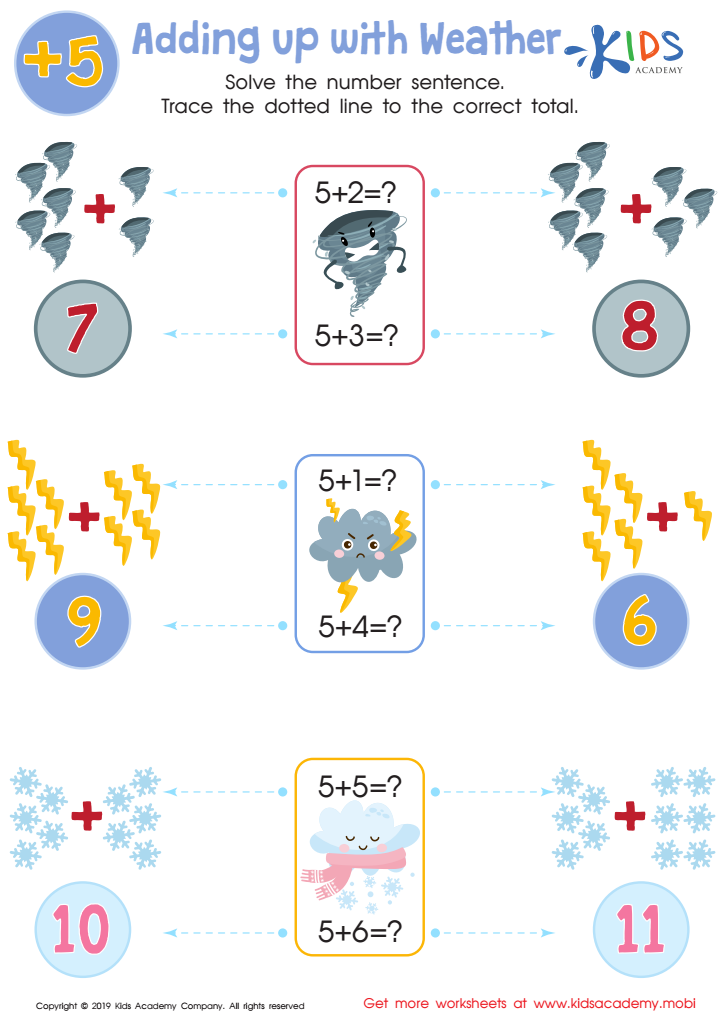

Adding up With Water Worksheet
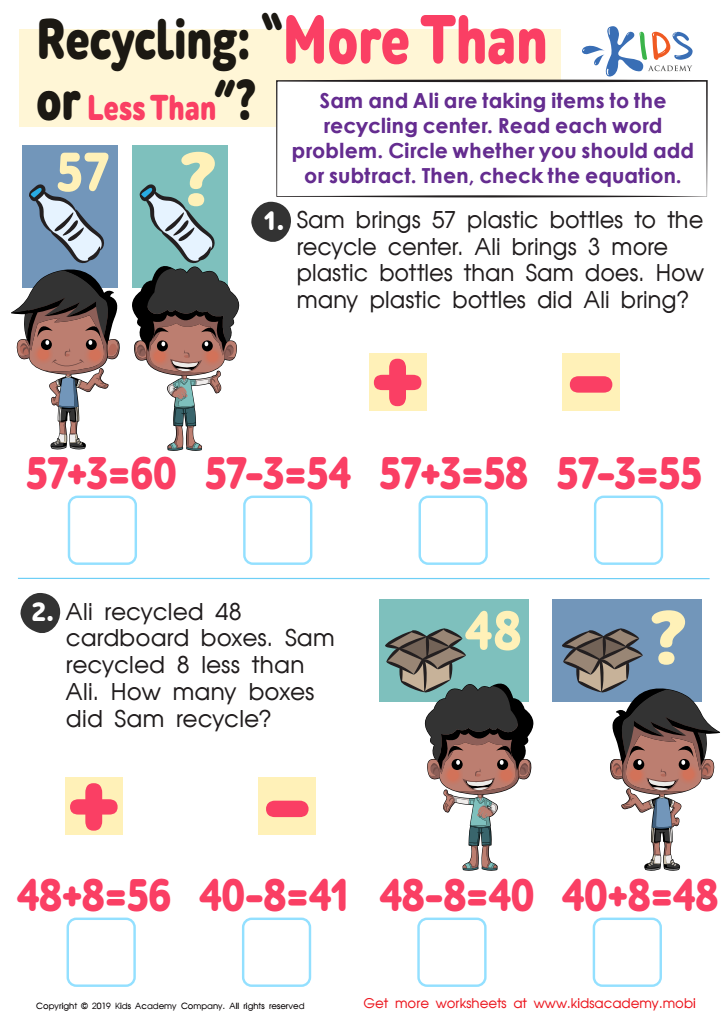

Recycling - More or Less Worksheet
Basic math skills, particularly in addition, are foundational for a child's cognitive development and academic success. Parents and teachers should emphasize kindergarten addition for several reasons. First, mastering simple addition develops critical thinking and problem-solving abilities, encouraging young learners to understand relationships between numbers and concepts. Additionally, these skills build a strong mathematical foundation essential for more complex math topics in later grades, paving the way for future academic achievement.
Furthermore, early exposure to addition fosters positive attitudes toward math. When children experience success in understanding basic operations, they are more likely to exhibit confidence and enthusiasm for math in the future. This positive mindset can help deter math anxiety and promote resilience when tackling challenging math problems later on.
Aside from cognitive and emotional benefits, understanding addition enhances everyday life skills, such as counting objects, managing money, or understanding time. When parents and teachers cooperate to reinforce these skills through playful activities and practical applications, they create a supportive learning environment. Ultimately, prioritizing basic math skills like addition not only cultivates a child’s intellectual growth but also equips them with essential tools for navigating their world effectively. Encouraging proficiency in this area sets the stage for lifelong learning and success.
 Assign to My Students
Assign to My Students






.jpg)














